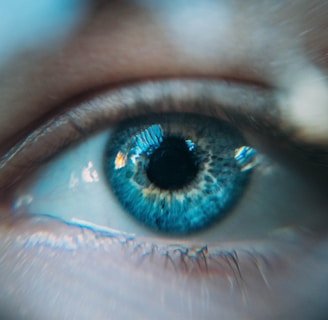Keep the Light Alive: A Guide to Healthy Vision for Middle-Aged Eyes
Screen overuse is straining our eyes, with middle-aged adults averaging 7-10 hours daily. Eye health reflects overall wellness, often signaling issues like high blood pressure or hormonal changes. Simple steps—healthy foods, hydration, the 20-20-20 rule, and screen adjustments—can reduce strain, preserve vision, and help you embrace life with clarity.
1/16/20253 min read


In today's hyper-connected world, with our smartphones, tablets, and computers just a tap away, the protection of our eyes has never been more crucial. For health-conscious middle-aged individuals, eye health is not just about preventing blurry vision; it's about maintaining a window to overall well-being. Let's explore why you need to prioritize your eyes, the simple habits that can make a difference, and how to truly "see the world better.
1. Rise of Screentime and Its Effects on Eye Health
One could hardly have imagined that the average adult spends between 7-10 hours a day in front of a screen. Indeed, in a report from Statista in 2023, such a high extent of screentime is causing digital eye strain, also known as computer vision syndrome or CVS. Symptoms can range from simple dryness and blurred vision to headaches and even neck pain, increasingly with age.
I’ve experienced it firsthand. After over 20 years of wearing glasses and contact lenses for both nearsightedness and reading, my eyes started feeling the strain of tons of Zoom meetings and late-night scrolling. It was a wake-up call to rethink how I interact with screens.
2. The Eyes Are a Window to Your Health
Your eyes reflect not only what is in front of them, but also what happens inside your body. As Dr. Joseph Allen, one of the famous optometrists, has said, "Tired eyes are often the first warning that something in the body is malfunctioning." For instance, continued eye fatigue may indicate the hidden presence of high blood pressure, diabetes, or even thyroid problems.
For middle-aged individuals who have menopause or other aging changes, hormonal alterations may heighten dryness and irritation of the eyes. Treating these symptoms as soon as possible can help a person avoid permanent damage that may even lead to detecting other general health issues.
3. Feed Your Eyes with Food and Habits
Your diet is an important determinant in eye health. Here are some foods that work wonders:
Leafy Greens: It's all full of lutein and zeaxanthin found in spinach, kale, and Swiss chard-these are antioxidants known to help combat age-related macular degeneration.
Fatty Fish: Oily fish, such as salmon, tuna, and mackerel, provide omega-3 fatty acids that reduce dryness in the eyes, helping with retinal health.
Citrus Fruits: Fruits like oranges and grapefruits contain much-needed vitamin C for maintaining good blood vessel health inside the eyes.
Nuts and Seeds: Almonds and sunflower seeds provide vitamin E for eye protection from oxidative stress.
Besides diet, some easy daily habits can make all the difference.
Following the 20-20-20 Rule: Every 20 minutes, take a 20-second break to look at something 20 feet away. This decreases eye strain.
Blink More: Conscious blinking can help one avoid dryness associated with staring at screens.
Hydrate: Proper hydration keeps the eyes from dryness and keeps them comfortable.
Wear Sunglasses: Even on cloudy days, UV rays may harm your eyes, so always wear sunglasses.
4. My Personal Screen Strategy for Healthier Eyes
Having grown up juggling glasses, contact lenses, and endless hours in front of screens, I knew developing a relationship with technology had to put my eye health at the forefront. Here's some advice I swear by:
Adjust Screen Settings: Dim the brightness and increase the contrast to reduce strain. Most devices also have blue light filters-use them.
Position Your Screen: Keep it at eye level and about an arm's length away. This reduces the risk of slouching, which can compound eye strain with neck and shoulder pain.
Stick to a Schedule: I set strict limits on late-night screentime and prioritize offline activities, like reading a physical book or meditating.
5. See the World Better
Taking care of your eyes is not just about glasses or contact lenses, but about adding enrichment to your life. Clear, healthy vision lets you embrace moments with loved ones, appreciate the beauty of nature, and continue to pursue your passions with confidence.
Be it a handful of almonds, a quick screen break, or an investment in some quality shades, small steps lead to giant leaps. Your eyes do a lot for you; it is time to give back.
